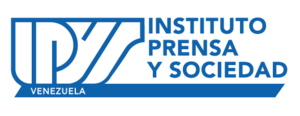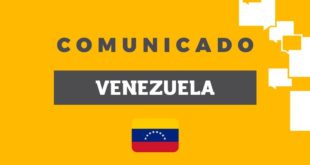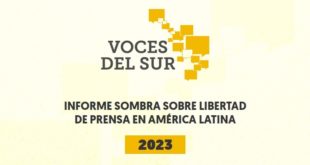Desde el 13 de enero de 2013, existen dificultades para acceder desde servicios de internet venezolanos al portal web Diario de Cuba (http://diariodecuba.com/), con sede en Madrid y dirigido por exiliados cubanos en ese país. Pablo Díaz, director de este medio, comentó a IPYS Venezuela, que esta situación se presentó luego de que publicaran algunas notas informativas sobre la salud del presidente de la República Hugo Chávez, quien se encuentra en reposo postoperatorio en Cuba, luego de haber sido intervenido quirúrgicamente, en ese país, por la aparición de nuevas células cancerígenas.
Díaz argumentó que esta situación se generó luego que el portal reportara un gran número de visitas, por la publicación de algunas notas que revelaban información -no confirmada por las autoridades venezolanas- sobre el estado de salud del presidente de la República. Según, los reportes de tráfico de la página, la nota con mayor registro, se titulaba “Prensa: Chávez está en ‘coma inducido’ y espera la ‘desconexión”, cuya fecha de publicación fue el 1 de enero de 2013, y generó alrededor de 160mil visitas desde Venezuela, hasta el 12 de enero de 2013. A pesar del presunto bloqueo a este medio digital, este artículo se encuentra disponible para su consulta en espacios virtuales internacionales.
Pablo Díaz señaló que las dificultades para acceder al portal solo se presentan en Venezuela, y que en otros países, entre ellos Cuba y Madrid, los usuarios pueden visitar el portal sin inconvenientes. Afirmó que el equipo informático que se encarga de gestionar el servidor que aloja esta página web -ubicado en Madrid, España- ha corroborado que esta plataforma funciona correctamente, por lo que no presenta fallas técnicas que pudiesen generar inconvenientes para las visitas de la web desde Venezuela. Por esta razón, presumen que la falla pudiese generarse por un bloqueo a este portal, por parte de los servicios de internet venezolanos, que probablemente haya colocado un filtro para impedir el acceso a este medio digital desde Venezuela y censurar sus contenidos.
Se pudo constatar, que desde Venezuela existen inconvenientes para acceder a este portal desde los servicios de internet de Cantv, la principal empresa de telefonía venezolana que pertenece al Estado; y los proveedores privados de Movistar e Inter. También, se pudo corroborar que desde el servicio de Digitel, sí se puede tener acceso al portal.
Según expertos, el principal servicio de internet en Venezuela lo ofrece Cantv. Las demás empresas, como Movistar, Inter y Digital, cuentan con sus propias redes de fibras para ofrecer acceso a internet, sin embargo, utilizan a la estatal Cantv, como proveedor para transportar datos, en casos y lugares donde sus plataformas no tienen capacidad para dar respuesta a la demanda de sus usuarios. Por su parte, Digitel cuenta con una red móvil propia, que en algunos casos, le puede permitir ofrecer el servicio sin tener utilizar el transporte de datos por parte de Cantv.
IPYS Venezuela consultó a altos ejecutivos de CANTV, vía correo electrónico el 01 de febrero de 2012, para obtener la versión oficial sobre este caso, y conocer las posibles causas de esta falla, sin embargo, luego de una semana de espera, la solicitud de información no ha sido respondida.
Crítica del ejecutivo
El artículo utilizado por el Diario de Cuba correspondía a un trabajo realizado y publicado por el diario ABC de España ( http://www.abc.es/internacional/20130101/abci-chavez-coma-inducido-201301011903.html), medio que recibió descalificaciones por parte de Nicolás Maduro, vicepresidente de la República, tras la difusión de este contenido. Maduro, el 3 de enero de 2013 en una alocución oficial, dijo que medios internacionales como el ABC de España tratan de “crear incertidumbre” e irrespetar” al pueblo venezolano, y que “se meten con las cosas más sensibles de la vida del comandante Chávez, como lo son sus hijas, sus hijos, su madre, su padre, sus familiares” (/alerta?id=3254&y=2013&m=01).
Entre tanto, “los registros sobre la situación del derecho a la libertad de expresión e información que lleva de forma permanente el Instituto Prensa y Sociedad de Venezuela (IPYS Venezuela) evidencian que el manejo informativo por parte del gobierno nacional sobre la salud del presidente de la República Hugo Chávez ha sido poco transparente y ha tenido como correlato un discurso agresivo hacia la prensa nacional y extranjera. Diversos representantes del Poder Ejecutivo, de manera recurrente, descalifican, intimidan y acusan a los periodistas y medios de desconocer la legitimidad del gobierno, por el hecho de presentar informaciones, desde diversas fuentes, sobre la situación de salud que afecta al primer mandatario nacional”.
Prohibición a la censura
El artículo 57, de la Constitución de la República Bolivariana de Venezuela prohíbe la censura, por lo que cualquier acción voluntaria que impida el acceso a contenidos informativos puede considerarse contraria a este principio constitucional. Asimismo, en el país no ha habido un desarrollo legislativo especial para el uso de Internet.
____________________________________________________________________________
Lea la versión en inglés
Venezuela: Difficulties to visit portal of Cuban exiles
Since January 13, 2013, there are difficulties in accessing from Venezuelan internet services the web portal Diario de Cuba (http://diariodecuba.com/), based in Madrid and run by Cuban exiles in that country. Pablo Díaz, director of this media, commented to IPYS Venezuela that this situation arose after the publication of some info notes on the health of the president of the republic Hugo Chávez, who is completing his post-op rest in Cuba, after going through a surgery in that country due to the appearance of new cancer cells.
Díaz argued that this situation started after the portal reported a large number of visits due to the publication of some notes revealing information -not confirmed by Venezuelan authorities- on the health status of the president of the republic. The web page´s traffic reports pointed out that the note with most hits was entitled “Press: Chávez is in an ‘induced coma’ and will possibly be ‘disconnected”, published on January 1st, 2013, generating close to 160 thousand hits from Venezuela, until January 12, 2013. Despite the presumed blockage to this digital media, this article is available for consultation in international virtual spaces.
Pablo Díaz pointed that the difficulties in accessing this portal are only present in Venezuela, and that in other places, such as Cuba and Madrid, users can visit the web site with no problems whatsoever. He stated that the IT team in charge of managing the server hosting this web page -located in Madrid, Spain- has corroborated that this platform works correctly and presents no technical flaws that could generate inconveniences to visitors from Venezuela. For this reason, it is presumed that the flaw could be generated due to this portal being blocked by Venezuelan internet services, which have probably placed a filter to hinder the access to this digital media from Venezuela and censor its content.
It was verified that from Venezuela there are inconveniences to access this portal through Cantv internet services, the main telephone services company in Venezuela belonging to the state; and also through private carriers Movistar and Inter. It was also verified that through the Digitel service it was possible to access the web page.
According to the experts, the principal internet service in Venezuela is provided by Cantv. Other companies such as Movistar, Inter and Digital have their own fiber cable networks to access internet, but they use the state-owned Cantv as the data transport provider, in cases and places where their platforms lack the capacity to respond to their users´ demands. In turn, Digitel has a mobile network of its own, which in some cases permits the offer of this service without using the data transport through Cantv.
IPYS Venezuela consulted top executives at CANTV via email on February 1st, 2012, to obtain their official version on this case, and know the possible causes for this situation, but after one week´s wait the request for information has not been responded.
Critique to the Executive
The article used by the Diario de Cuba corresponded to an article written and published by the daily ABC from Spain ( http://www.abc.es/internacional/20130101/abci-chavez-coma-inducido-201301011903.html), a media which was berated by Nicolás Maduro, vice-president of the republic, after releasing this content. In an official allocution on January 3, 2013, Maduro stated that international media like the ABC de España are trying to “create uncertainty” and disrespecting” the Venezuelan people, and that “they are meddling in the most sensitive parts of the life of commander Chávez, such as his daughters, his sons, his mother, his father, his family members” (/alerta?id=3254&y=2013&m=01).
Meanwhile, “the records on the situation of the right to freedom of expression and information permanently carried by the Instituto Prensa y Sociedad de Venezuela (IPYS Venezuela) evidence that the national government´s handling of the information on the health of the president of the republic Hugo Chávez has lacked transparency and has been accompanied by an aggressive assault against the national and foreign press. Several executive power representatives have recurrently disqualified, intimidated and accused the journalists and the media of disowning the legitimacy of the government, for presenting information from various sources on the health of the head of state”.
Prohibition on censorship
Article 57 of the constitution of the Bolivarian republic of Venezuela prohibits censorship, so any voluntary action preventing access to information content can be deemed contrary to this constitutional principle. Besides, there has been no special legislation in this country on the use of Internet.
 IPYS Instituto Prensa y Sociedad Venezuela
IPYS Instituto Prensa y Sociedad Venezuela



